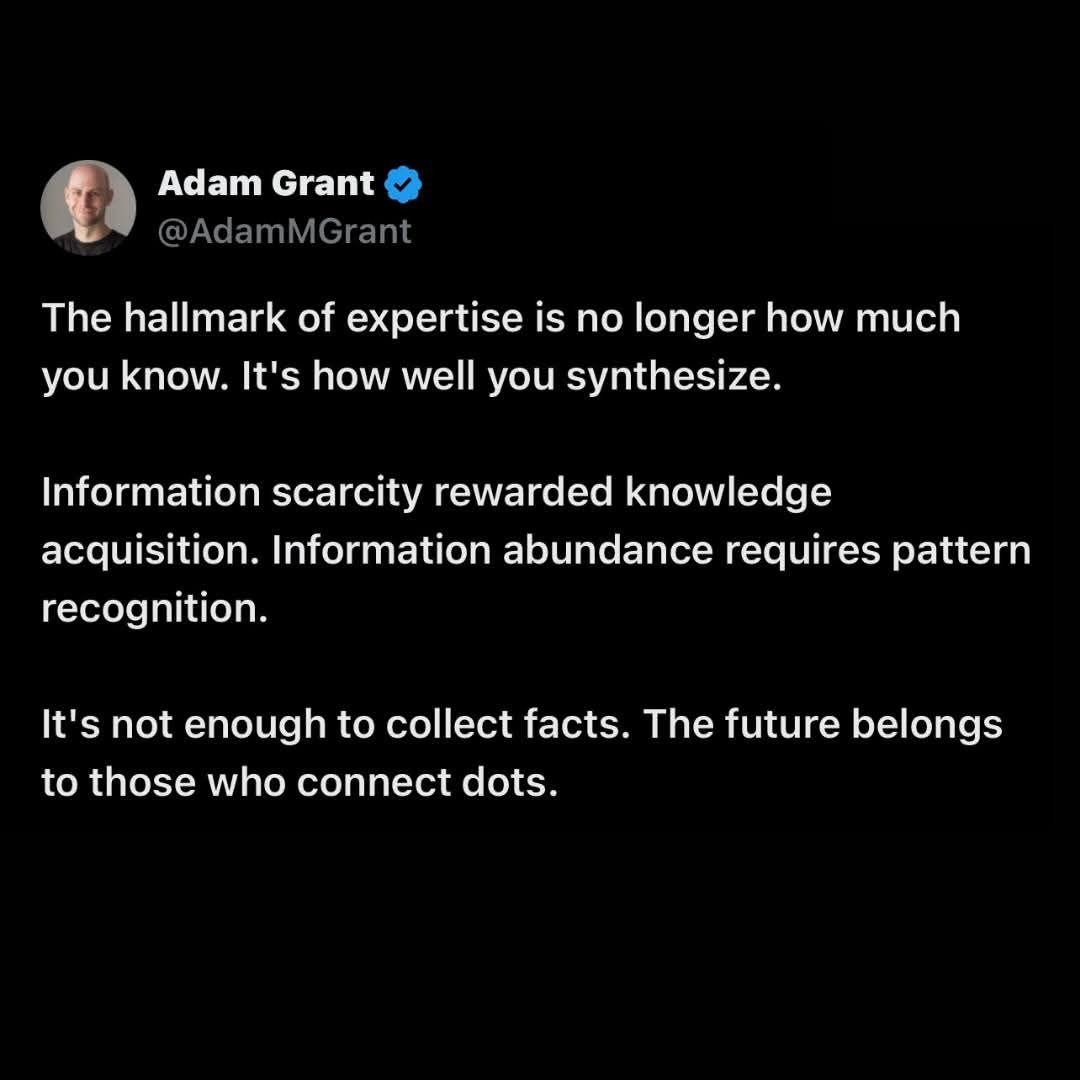- Blue Church Book
- Posts
- People Have Been Dying to Know Why Spiritual and Religious Isolation Leads to Anxiety. Well, I’ll Tell Ya...
People Have Been Dying to Know Why Spiritual and Religious Isolation Leads to Anxiety. Well, I’ll Tell Ya...

Sometimes a secular meme or post, reminds me of a spiritual truth. The one above is yet another one. We are living in what is called the information age. And its true! As a pastor, I almost never get asked “wat must I do to be saved”, but rather, stuff like “Do you believe in aliens? Who do you think built the pyramids? What do you think about ghosts?” and other such questions. This tells me that people are encountering vast troves of information via social media and the internet. The problem is people need help connecting all this information together and/or discarding what is not useful, into a coherent and viable Christian spirituality that enhances as well as brings joy and peace to ones life. I think this is what Jesus was the absolute master at!
Look at His encounter with the woman at the well. He masterfully navigated her questions, helped her discard what information wasnt useful, and then did a root cause analysis of her spiritual state; turning her into an evangelist.
People Have Been Dying to Know Why Isolation Leads to Anxiety. Well, I’ll Tell Ya...
In a world overflowing with information, it’s easy to think that collecting facts is enough. Read the right books, listen to the best sermons online, follow the most insightful Christian influencers, and you’ll be spiritually strong, right? Wrong. The key to lasting faith and mental health isn’t just knowledge—it’s connection.
Psychologist Adam Grant points out that expertise today isn’t about how much you know but how well you synthesize information and recognize patterns. This is even more true for Christian professionals balancing faith, career, and personal growth. You don’t need more information. You need guidance, community, and tradition to help you connect the dots.
Why Isolation is a Mental Health Disaster
Studies consistently show that loneliness and isolation are among the strongest predictors of anxiety, depression, and even early death. A 2018 study published in The Lancet found that social isolation increases the risk of premature mortality by 29%. Another study in JAMA Psychiatry revealed that people who lack strong social connections suffer from heightened stress responses, making them more vulnerable to anxiety and burnout.
This aligns perfectly with biblical wisdom:
"Two are better than one, because they have a good reward for their toil. For if they fall, one will lift up his fellow. But woe to him who is alone when he falls and has not another to lift him up!" (Ecclesiastes 4:9-10)
Yet, many Christian professionals try to go it alone—spiritually and mentally. They consume endless sermons and theological content but remain disconnected from a pastor, a church community, and the wisdom of Christian tradition. This isolation isn’t just spiritually dangerous—it’s mentally exhausting.
The Science of Why You Need a Pastor
Having a trusted pastor or spiritual mentor is more than just a religious practice; it’s a necessity for emotional and psychological stability. Neuroscientific research shows that mentorship and guidance reduce cortisol levels, the stress hormone, and increase oxytocin, which fosters trust and emotional well-being.
Saint John Chrysostom understood this centuries ago:
"The soul that has no one to guide it will find itself in great peril, for it is easily deceived by the enemy."
A pastor isn’t just a teacher—they are a shepherd who helps you make sense of your experiences, avoid spiritual pitfalls, and navigate life’s chaos with wisdom.
Why Church Community is Essential
A church community is the spiritual immune system that keeps you strong. The early Church didn’t function through isolated individuals consuming religious content; they gathered, prayed, and supported one another.
"And let us consider how to stir up one another to love and good works, not neglecting to meet together, as is the habit of some, but encouraging one another..." (Hebrews 10:24-25)
Modern psychology confirms what Scripture teaches. A Harvard study on happiness found that strong relationships were the most significant predictor of long-term well-being. Christians with a solid church community report lower levels of stress, depression, and even physical illness.
The Power of Received Tradition
In an era of unlimited choices, decision fatigue is real. When every theological question is up for debate, and every moral dilemma has countless “perspectives,” mental exhaustion sets in.
This is why received tradition is a gift, not a burden. Instead of trying to reinvent Christianity in every generation, tradition offers a tested, reliable framework for faith and life. As G.K. Chesterton put it:
"Tradition means giving votes to the most obscure of all classes, our ancestors. It is the democracy of the dead."
A Christian professional who embraces tradition—the wisdom of the Church Fathers, the creeds, and the historic practices of the faith—doesn’t waste energy reconstructing their faith from scratch. They stand on a firm foundation.
Connecting the Dots: Why This Matters for You
If you’re feeling overwhelmed, anxious, or spiritually unmoored, ask yourself:
Do I have a pastor or mentor guiding me?
Am I actively engaged in a church community?
Am I grounding myself in Christian tradition, or am I chasing the latest ideas?
You don’t need more information. You need a living faith, rooted in relationships and wisdom. Because the future doesn’t belong to those who collect facts—it belongs to those who connect the dots.